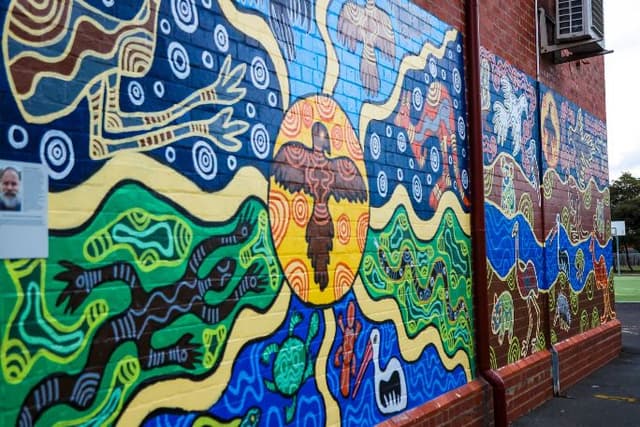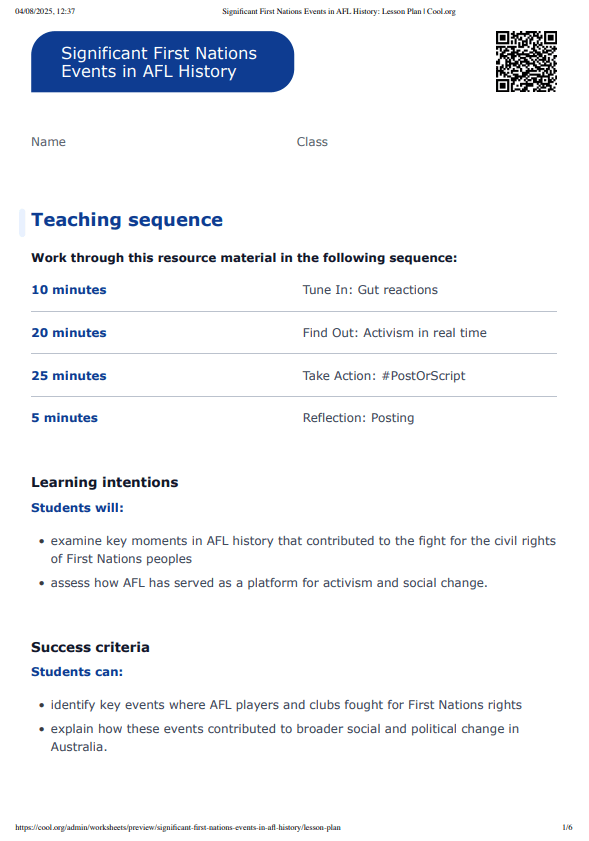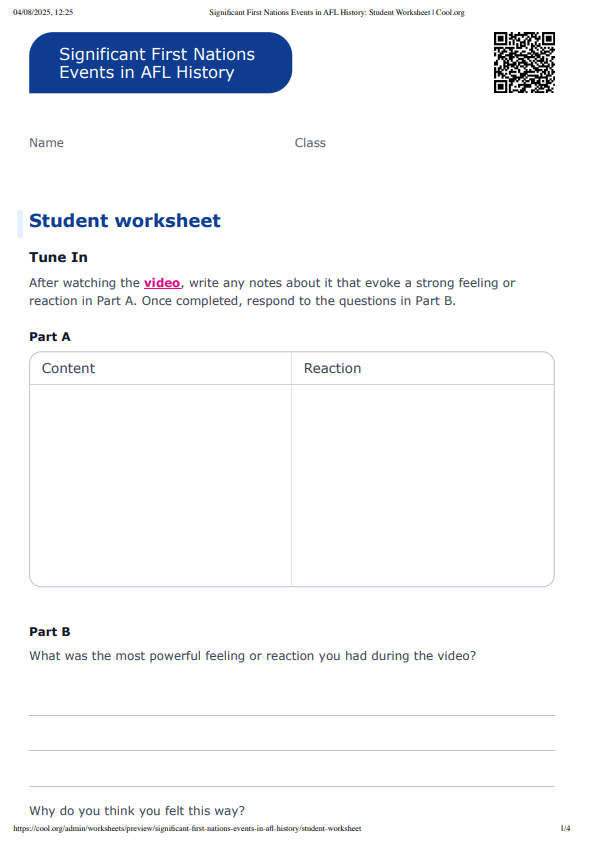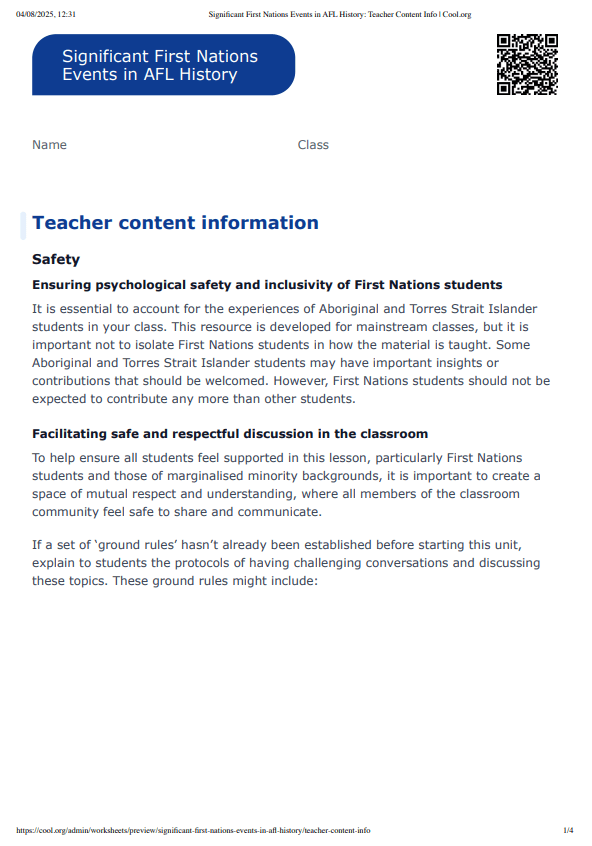Learning intentions
Students will:
- examine key moments in AFL history that contributed to the fight for the civil rights of First Nations peoples
- assess how AFL has served as a platform for activism and social change.
Success criteria
Students can:
- identify key events where AFL players and clubs fought for First Nations rights
- explain how these events contributed to broader social and political change in Australia.



